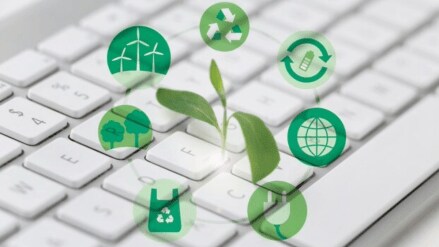Despite the deprecation of third-party identifiers and global economic turbulence, sustainability is a key focus for professionals within the Japan and Asia-Pacific (JAPAC) region, according to a new research report, Sustainability in Advertising – JAPAC 2023 by ExchangeWire, in association with OpenX.
The majority of those surveyed deemed sustainability metrics to be important to their business, while simultaneously converting theoretical applications into tangible business outcomes, with nearly half (47%) of all marketing budgets across the JAPAC region set to be allocated to carbon-neutral partners within the next year, as per the report. JAPAC refers to the geographical region that includes Japan and various countries in the Asia-Pacific region.
From 2020 to 2022, surveys were conducted among media professionals in the digital advertising supply chain in Australia, India, Indonesia, and Japan. Programmatic advertising is gaining importance in the region, in line with efforts to cut carbon emissions. The report notes that 64% of surveyed professionals reported a rise in programmatic spending and revenues.
In the JAPAC market, most respondents find sustainability metrics crucial for their businesses in the next 24 months. As per the report, about 47% of the budget will go to carbon-neutral partners.
The main hurdle in achieving carbon reduction goals is increased operational costs, as mentioned by over half of the respondents. 56% note increased operational costs, 48% mention lack of external pressure, and 45% cite prioritisation of other industry trends as factors hindering carbon reduction goals in India.
Nearly half have set Science-Based Target Initiative (SBTI) goals for carbon reduction. In India about 69% have set SBTi goals, 16% haven’t, and 15% are unsure.
Additionally, almost half require their advertising partners in JAPAC to report their carbon emissions, showing a positive shift in environmental efforts.
“Sustainability is an incredibly important initiative for the JAPAC market as a whole. As a result, we’ve seen earlier adoption of sustainability measures and actions across both buy-and-sell-sides, with clear expectations and timeframes for when these are to be implemented.” John Harvey Faurholt, director, advertising and retail media partnerships – JAPAC, China, Microsoft advertising, said.
As the report highlights, despite economic challenges, there’s a noteworthy 64% increase in programmatic revenue and spending. Concerns about fraud and quality issues, including the use of MFA (multi-factor authentication) sites, remain notable but have decreased since last year.
Despite navigating through the changes brought about by Apple on its mobile platform, a 62% respondents within the JAPAC programmatic industry still harbours some level of concern regarding the impending privacy changes that Google is set to implement across display and mobile, indicating a continued vigilance and awareness within the industry about privacy regulations and the impact it may have on programmatic advertising.
“As programmatic advertising gains momentum, it is crucial for the adtech industry to champion sustainability and prioritise carbon emissions reduction. The industry holds the key to driving these sustainability initiatives for India’s digital advertising landscape.” Priya Bhatia, country manager, Southeast Asia and India said.
The report on India’s carbon reduction efforts reveals varied timelines, with 21% measuring emissions within six months, 17% within a year, and 25% within three to five years; 29% have no plans. For mandating partner reporting, 13% aim for six months, 20% within a year, and 33% within three to five years, with 20% not planning.
